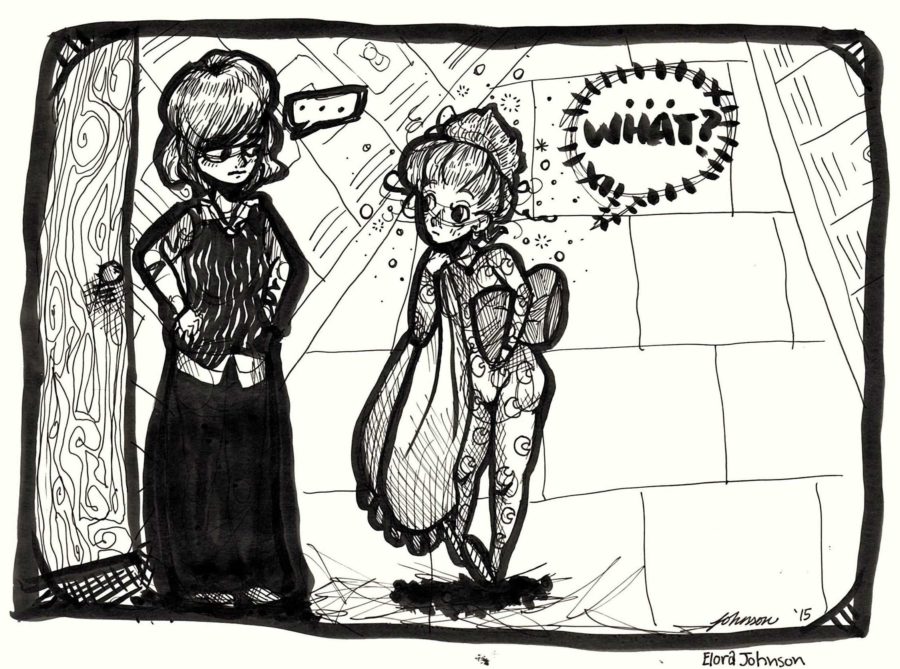Is it Time to Fall Asleep Yet?
December 5, 2015
As students struggle to keep their grades up, their sleepless nights may actually be killing their bodies.
According to the article “Sleep Needs of Students”, it’s known that teenagers’ bodies naturally want to stay up late and wake up late. School districts that have recognized this and moved their high school and middle school start times later report improved student health and academic performance.
“The national sleep foundation says you guys, students, need eight to nine hours of sleep. I think the recommendation for adults is seven to eight, but for sure a minimum of seven,” said psychology teacher Andy Gagnon. “I think that moving the start time of school back can help. Fifteen to nineteen year olds, your melatonin starts later. You’re naturally going to stay up later, so you shouldn’t be waking up till later. I think that research says younger children should start earlier, teenagers and high schoolers should start later and they will actually be awake.”
In 2014, the University of Minnesota’s Center for Applied Research and Educational Improvement concluded a three-year project that looked at school start times and student grades, finding that among 9,000 students from eight high schools in three states, academic performance and standardized testing improved in more than one subject, as stated in the article “Hit the Snooze”. Pushing start times had a decrease in tardiness, and at one school, the number of teen car crashes dropped by 70 percent.
“The number one thing for students to do is get devices out of the bedroom. If you think of your bedroom as solely a place to sleep and not anything else, that would help. Other than that, I think it’s just being disciplined and thinking, ‘at eleven o’clock each night I’m going to shut the lights out no matter what,’” said Gagnon.
Individual’s sleep approximately one-third of their lifetimes—science still has a great deal to learn about this very common phenomenon, as mentioned in the article“Sleep and Sleep Disorders”. People all recognize that sleep is a necessity and that although they can go without it for a while, sleep eventually becomes as important to health and well-being as food, air, and water. People also know that when they sleep well, they seem to wake refreshed and alert and generally feel ready to face the day.
“I can see that lack of sleep is definitely affecting students in the sense that concentration can be affected. If people are tired, they’re less apted to think, they want to kind of restrain their energy and reserve it,” said Gagnon. “I hear students saying, ‘I was up till one last night, three last night,’ I get emails at two thirty in the morning from students, so their up.”
We still don’t fully understand the importance of sleep. What we do know is that sleep is a building process. And we think it restores the body’s energy supplies that have been depleted through the day’s activities. Sleep is also the time when the body does most of its repair work; muscle tissue is rebuilt and restored as shown in “Sleep is as important as food, if not more so”.
We know, for example, that growth hormone is secreted during sleep. This hormone is important for growth in children, but is also important throughout adulthood in rebuilding tissues.
“Little things like reading seems to put the mind at rest. The National Sleep Foundation recommends reading instead of phones or anything that gives off blue light. Blue light simulates sunlight so it doesn’t get your melatonin going so your body thinks it’s day time out,” said Gagnon. “ Then listening white noise also helps, so having a fan on or something that makes staticy sound sometimes helps people sleep.”
According to “Dreaming”, at its most basic level, dream work can mean painting, sculpting or creating something from your dreams. However at a deeper level, dream work can allow you to address things in your dream that bother you, or to acknowledge what gifts they have provided. A person can create a different ending to a dream, such as making a sculpture of the monster that chased you and then putting it into a cage.
Or you may build a shrine to thank a character who gave you wisdom. You may even make a pilgrimage to a special place that you have dreamed about. You can light candles, plant seeds, call an old friend – it will depend on what the dream said personally to you, as to how you decide to honor it.
“Dreams are a sequence of images, emotions and thoughts passing through a sleeping person’s mind. There’s a theory out there that says dreams help you to build memories. They help to consolidate memory, your events from the day before you’ve processed are strengthened by dreaming,” Gagnon said. “Sigmund Freud talked about how dreams are unfulfilled wishes which we can’t act out in real life. Our dreams act as a safe haven for us to think out, act out our fantasy that we have.”


























































